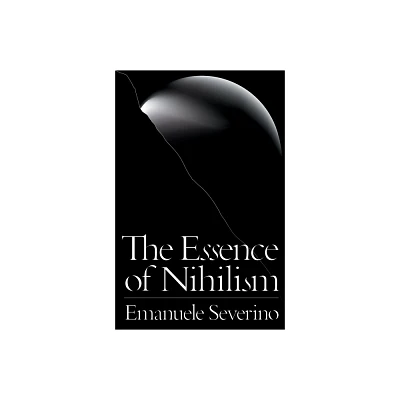Home
the Epistemology of Desire and Problem Nihilism
Loading Inventory...
Barnes and Noble
the Epistemology of Desire and Problem Nihilism
Current price: $90.00


Barnes and Noble
the Epistemology of Desire and Problem Nihilism
Current price: $90.00
Loading Inventory...
Size: Hardcover
*Product Information may vary - to confirm product availability, pricing, and additional information please contact Barnes and Noble
Most people have wondered whether anything really matters, some have temporarily thought that nothing really matters, and some philosophers have defended the view that nothing really matters. However, if someone thinks that nothing mattersif they are a "nihilist about value"then it seems that it is irrational for them to care about anything. It seems that nihilism about value mandates total indifference. This is the "problem of nihilism" Allan Hazlett addresses in
The Epistemology of Desire and the Problem of Nihilism
.
Hazlett argues that the problem of nihilism arises because desireand thus caringis a species of evaluation that admits of irrationality. This contradicts the influential Humean view that desire does not admit of irrationality, which has a ready solution to the problem of nihilism: since desire does not admit of irrationality, it cannot be irrational to care about something that you believe does not matter. However, following G.E. Anscombe, Hazlett argues that desire has the same relationship to goodness as belief has to truth: just as truth is the accuracy condition for belief, goodness is the accuracy condition for desire.
This reveals desire as an appropriate target of epistemological inquiry, in the same way that belief is an appropriate target of epistemological inquiry. Desires can amount to knowledge (in the same way that beliefs can amount to knowledge) and, crucially for the problem of nihilism, desire admits of irrationality (in the same way that belief admits of irrationality). Nevertheless, although it is obviously irrational to believe something that you believe is not true, Hazlett argues that it is not irrational to desire something you believe is not good, despite the fact that goodness is the accuracy condition for desire. This provides a solution to the problem of nihilism, and shows that nihilism about value can coherently be combined with the anti-Humean view that desire is a species of evaluation.
The Epistemology of Desire and the Problem of Nihilism
.
Hazlett argues that the problem of nihilism arises because desireand thus caringis a species of evaluation that admits of irrationality. This contradicts the influential Humean view that desire does not admit of irrationality, which has a ready solution to the problem of nihilism: since desire does not admit of irrationality, it cannot be irrational to care about something that you believe does not matter. However, following G.E. Anscombe, Hazlett argues that desire has the same relationship to goodness as belief has to truth: just as truth is the accuracy condition for belief, goodness is the accuracy condition for desire.
This reveals desire as an appropriate target of epistemological inquiry, in the same way that belief is an appropriate target of epistemological inquiry. Desires can amount to knowledge (in the same way that beliefs can amount to knowledge) and, crucially for the problem of nihilism, desire admits of irrationality (in the same way that belief admits of irrationality). Nevertheless, although it is obviously irrational to believe something that you believe is not true, Hazlett argues that it is not irrational to desire something you believe is not good, despite the fact that goodness is the accuracy condition for desire. This provides a solution to the problem of nihilism, and shows that nihilism about value can coherently be combined with the anti-Humean view that desire is a species of evaluation.


















